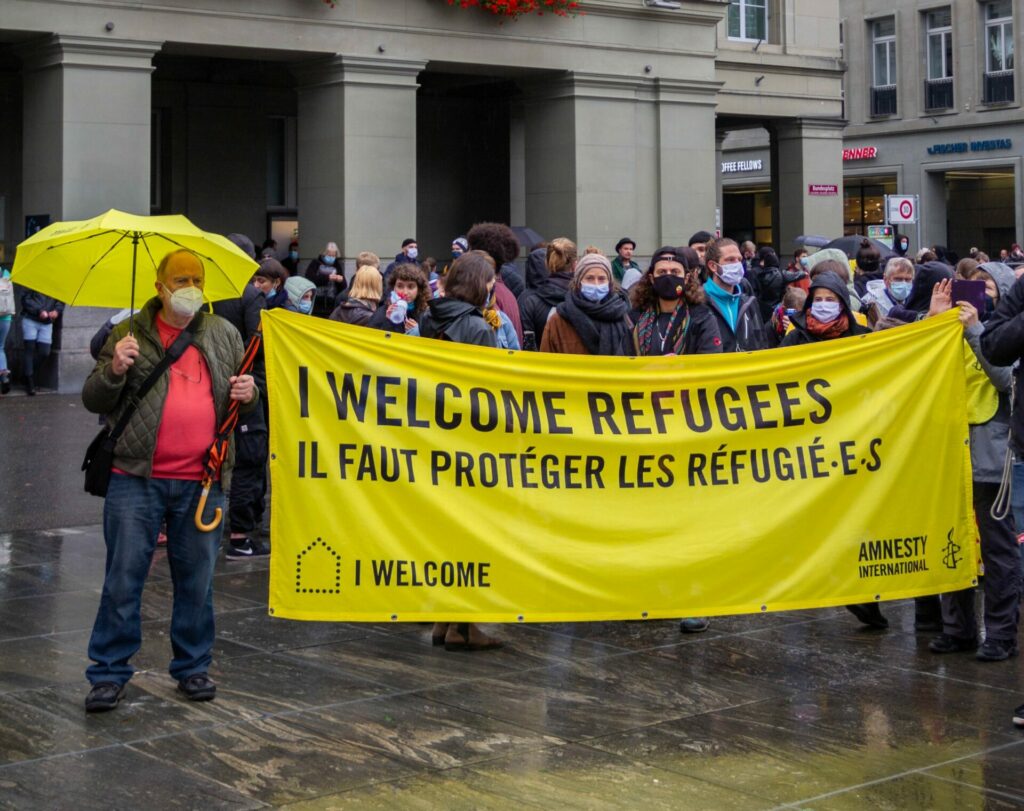Monday 20 June, marks the United Nations World Refugee Day, a day dedicated to raising awareness of the situation of refugees around the world. Eurostat, the European Statistical Office has provided an update on asylum seekers to the EU.
In Europe, there were 73,850 first-time asylum applicants who applied for international protection in EU Member States, an uptake of 115% compared to March 2021, which had 34,310 applicants, and up 35% compared to February 2022, with 54,565 applicants.
The sharp increase from February to March 2022 is mainly due to the increase in Ukrainian first-time applicants, from 2,370 in February to 12,875 in March, up 443% because of Russia's invasion of Ukraine.
In March 2022, there were an additional 6,510 applications, that reapplied for asylum after a decision had been made during a previous application. The amount increased by 4% compared to March 2021 and went up 6% compared to February 2022.
Moreover, the largest number of Ukrainians assigned temporary protection in the EU was in Poland, which is hosting 1,142,375 Ukrainians with temporary protection at the end of May 2022.
Ukrainians were largest group of first-time asylum applicants
In March 2022, Ukrainians were the largest group to seek asylum in the EU, with 12,875 applications. The second largest group were Afghans, with 7,770, followed by Syrians, 7,320, Venezuelans, 4,705 and Columbians, 3,565.
Germany reported the highest number of first-time asylum seekers. With 14,135, Germany had 19% of all first-time applicants in the EU. After Germany, came Spain with 11,130 (15%), ahead for France with 10,240 (14%), Italy with 6,035 (8%), Austria with 4,295 (6%) and Romania with 4,270 (6%). In total, the six member states accounted for over two-thirds (68%) of all first-time asylum seekers.
Unaccompanied minors
There were 2,570 unaccompanied minors who applied for asylum in the EU, of which almost half were Afghans. In March 2022, 2,570 unaccompanied minors applied for asylum for the first time, up by 98% compared with March 2021 (1 300) and up 16% compared with February 2022, with 2, 215.
The majority of unaccompanied minors who applied for asylum in March 2022 came from Afghanistan with 1,230, Syria with 325, and Somalia with 115.
Member states which received the highest numbers of asylum seekers in March 2022 were Austria, 590, Germany, 435, and Bulgaria, 275.
Reforming the European Asylum System
The right to seek asylum in the EU is guaranteed in the 1951 Geneva Convention, which recognised asylum as a fundamental right and international obligation to protect people fleeing persecution or serious harm in their country of origin.
Recently, the European asylum system has struggled due to an increase in asylum seekers. Asylum flows are neither constant nor evenly distributed across the EU. During the refugee crisis in 2015, there were 1.8 million asylum applicants to the EU compared to 142,000 in 2019, a decrease of 92%, according to the European Commission.
There have been calls to reform the European Asylum System, but many countries have been resistant to a more equal distribution of refugees between Member States, with the resurgence of far-right politics playing its part.
Problems in the system
The asylum system has been heavily criticised due to the treatment of refugees to Europe. A recent investigation revealed that Frontex, Europe's border agency, may have been involved in hundreds of refugee pushbacks, according to the Guardian.
Moreover, many refugees are languishing in refugee camps in the outskirts of Europe in Turkey and Libya. Since 2016, the EU started assisting the Libyan Coast Guard with intercepting men, women and children and returning them to camps, with inhuman conditions as well as the risk of torture and sexual violence, while the Libyan government lets perpetrators act with impunity, according to Amnesty International.
Related News
- Massive increase in suicides and attempts in Belgian asylum centres
- At least 300 Ukrainian refugees in Belgium have returned home
- IRC: '100 million displaced represent 100 million reasons for change'
In addition, Turkey and the EU signed a deal in 2016 to limit refugee flows from Turkey into Greece in exchange for €6 billion to improve the situation for refugees.
While the deal has lessened the amount of refugees to Europe, the NGO International Rescue Committee points out its devastating impact on refugees now stuck in limbo, with many refugees living in poverty in Turkey while children are unable to attend school. Many asylum seekers remain in refugee camps in Greece, which are overcrowded and without enough provisions.
For now, the EU's deals with both Turkey and Libya remain intact.

